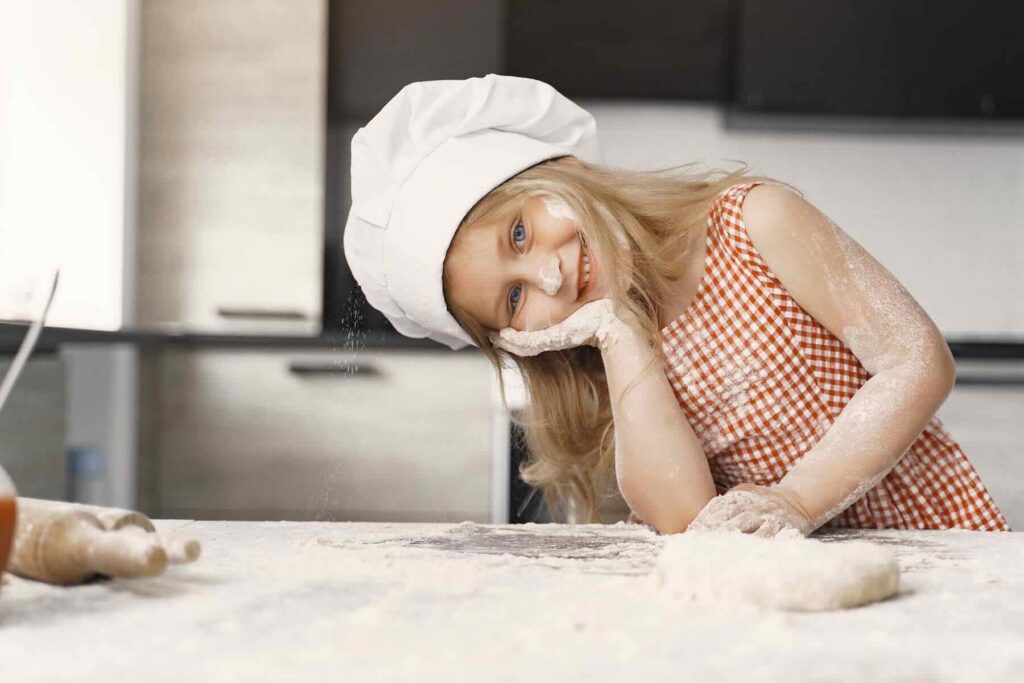How to make language learning delicious and fun How can you make learning Russian more enjoyable? How can your child start using Russian right away — in real life?
We often say that Russian is one of the most difficult languagesin the world. And it’s true — especially if you focus only on grammar and memorization. But when you combine language learning with games and daily activities, it becomes much easier.
One great way to practice Russian at home is… through cooking!
How Can You Learn Russian in the Kitchen?
You don’t always need to sit down for a formal lesson to learn a language. You can simply gather the family and cook a delicious meal together.
The kitchen becomes a relaxed and warm learning space — and your child learns new words without even noticing.
Cooking is a great way to teach vocabulary related to food and daily life. You can name ingredients in Russian, talk through steps like mixing or baking, or watch simple Russian cooking shows together and repeat what the chef says. That’s real-life language learning — and it’s fun and tasty too!
And if you're looking for real individual Russian lessons with professional teachers, we’ve talked about that before — at Palme School.

Who Is This Method Good For?
Cooking-based language practice works for any age and any level.
If your child doesn’t speak Russian yet, start with basic words like: картошка (potato), молоко (milk), масло (butter), хлеб (bread) — the same words we start with in professional lessons.
If your child already speaks some Russian, talk about the recipe and the steps in Russian. Or simply chat about your day — in Russian — while you cook.
With younger kids, you can play “restaurant” with toy food and have them serve you — speaking in Russian. Older kids can try cooking real meals — like борщ — using a Russian recipe.
You can even make a shopping list or plan a full menu together in Russian!

Why Cooking Helps Language Learning
According to research from the New Jersey Institute for Food, Nutrition & Health, even basic cooking skills support a child’s cultural development and learning ability.
Plus, while cooking, we use simple everyday language — the kind of Russian that’s actually useful in real life.
When children hear and speak Russian in the kitchen, they start learning naturally — with better pronunciation and real vocabulary. And it’s much easier than memorizing grammar from a textbook.
Want to explore how your child can start speaking Russian through fun activities like cooking, crafts, or games? Fill out the form below and join our next online tour of Palme School.






